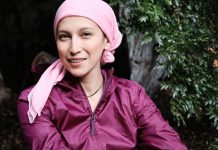
Breast cancer is a serious health concern worldwide. When someone has early-stage breast cancer, there’s a small but significant chance that the cancer might come back, or relapse, within five years after they’ve been treated.
This risk is even higher for people with more advanced stages of cancer. Usually, chemotherapy is used to try and kill all the cancer cells, but sometimes a few manage to survive and cause the cancer to return.
For over a decade, a team of researchers led by Assistant Professor Leong Sai Mun from the National University of Singapore has been working hard to understand why some breast cancer cells can survive chemotherapy.
They looked closely at tumor and blood samples from 63 breast cancer patients and did experiments with cancer cells in the lab.
What they found was surprising. Some cancer cells had high levels of a tiny molecule called miR-125b. These cells acted in a way that helped other cancer cells around them grow and resist chemotherapy.
This goes against the common belief that cancer cells only care about their own survival. Instead, these cells were showing a kind of selfless behavior, sacrificing their own growth to help other cancer cells thrive.
Professor Leong explained that to effectively destroy these cancer cells, treatments need to specifically target this cooperative behavior. They have to stop the surrounding cells from benefiting from the self-sacrificing ones.
Their study, published in the journal Molecular Cancer, describes how these selfless cancer cells send signals that make the whole tumor more resistant to chemotherapy.
They do this through a pathway called NF-κB. While these selfless cells slow down their own growth, they release certain proteins that make the entire tumor more tolerant to chemotherapy.
An interesting point in the study is the idea of cancer cells acting altruistically, like they are working together. It’s like a cancer cell holding hands with its neighbors, symbolizing their cooperation to overcome chemotherapy.
Dr. Muhammad Sufyan Bin Masroni, who played a key role in the study, pointed out a challenge: even if you remove these selfless cancer cells, they can come back. They seem to regenerate from other cancer cells and stay in the tumor at a low but steady rate.
This research involved a large team from various institutions, including different departments at the National University of Singapore, the National University Hospital, and even international collaborators like the Pennsylvania State University in the United States.
Associate Professor Mikael Hartman, another important member of the team, believes this research offers new insights into the complex behavior of breast cancer, which could lead to better ways of understanding and treating it.
The team’s work shows that cancer cells can have complex interactions, almost like social bonds seen in animals and micro-organisms, such as bees and ants.
They also found that cancer cells can perform different roles at the same time, balancing their cooperative behavior within the tumor.
This study doesn’t just help with cancer treatment. It also sheds light on how this kind of selfless behavior could play a role in other diseases caused by bacteria or viruses, deepening our understanding of how different organisms interact in diseases.
If you care about colon health, please read studies about whether aspirin could lower colon cancer risk in older people, and this drug may lower death risk in colon cancer.
For more information about colon health, please see recent studies about how to protect yourself from colon cancer, and results showing this vitamin level in the body is linked to colon cancer risk.
The research findings can be found in Molecular Cancer.
Copyright © 2023 Knowridge Science Report. All rights reserved.



